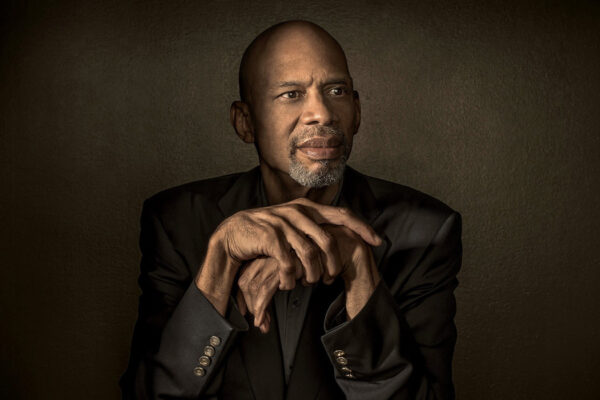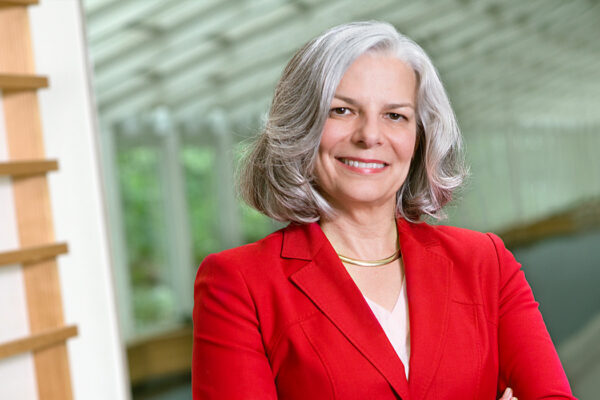Washington University in St. Louis will award six honorary degrees during the university’s Commencement ceremonies, May 20-21.
The university also will bestow academic degrees on approximately 3,200 members of the Class of 2021 during its 160th Commencement.
National Basketball Association great and social justice advocate Kareem Abdul-Jabbar will deliver theCommencement address and receive an honorary doctor of humanities degree.
The other honorary degree recipients and their degrees are:
- Christopher S. “Kit” Bond, the former U.S. senator who earned a reputation over his 40 years of distinguished public service as a skilled statesman able to build coalitions and effectively work across party lines, doctor of laws;
- Richard H. Helmholz, the Ruth Wyatt Rosenson Distinguished Service Professor of Law at the University of Chicago Law School, a distinguished legal and history scholar with an expertise in medieval and early modern law, doctor of laws;
- Gerda Weissmann Klein, a Presidential Medal of Freedom recipient and Holocaust survivor who has dedicated her life to fighting racism and intolerance and promoting Holocaust education and human rights, doctor of humanities;
- Stuart A. Kornfeld, MD, the David C. and Betty Farrell Professor of Medicine at Washington University’s School of Medicine, a renowned physician-scientist, doctor of science; and
- Shannon Watts, founder of the nation’s largest grassroots group fighting against gun violence, Moms Demand Action for Gun Sense in America, doctor of humanities.
With limitations on gatherings and crowd sizes because of COVID-19, the university will host eight smaller in-person ceremonies on Francis Olympic Field in place of the traditional universitywide Commencement ceremony. There will be a maximum of 500 graduates at each ceremony, with two guests allowed per graduate.
Because of the need to limit attendees, the honorary degree recipients will be recognized virtually.
“We truly have a remarkable ‘class’ of honorary degree recipients who have all made outstanding contributions to better society and make impactful change,” said Chancellor Andrew D. Martin.
“In their important work, they have exemplified Washington University’s mission to improve lives in service of the greater good, and I am pleased that we can recognize them in this way.”
Honorary degree recipients
Considered by many to be the greatest basketball player of all time, Abdul-Jabbar is also a humanitarian, a prolific author and an advocate for racial justice and social change.
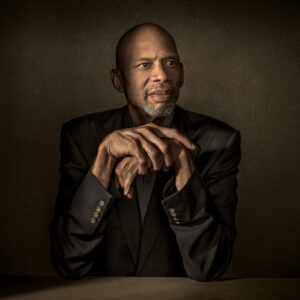
The 7-foot-2 basketball Hall of Famer is famous for his trademark skyhook shot and dominating the NBA for 20 years with the Milwaukee Bucks and the Los Angeles Lakers. He was a record six-time NBA Most Valuable Player, a record 19-time NBA All-Star and a member of six NBA championship teams. He remains the NBA’s all-time leading scorer with 38,387 points.
But as Abdul-Jabbar has said about himself, “I can do more than stuff a ball through a hoop; my greatest asset is my mind.” Abdul-Jabbar, the recipient of a Presidential Medal of Freedom, the nation’s highest civilian honor, has spent his life fighting against injustices like systemic racism and health, educational and employment disparities.
He founded and has served since 2009 as chairman of The Skyhook Foundation, whose mission is to “give kids a shot that can’t be blocked” by bringing STEM (science, technology, engineering and mathematics) opportunities to underserved Los Angeles communities.
A New York Times bestselling author, he has written 16 books, including two memoirs. He received the 2012 NAACP award for his children’s book “What Color Is My World? The Lost History of African-American Inventors.”
After 50 years as an athlete and activist, he offers his perspectives as a nationally recognized speaker who regularly appears on the lecture circuit. A contributing columnist for newspapers and magazines around the world, he has been named Columnist of the Year at the Southern California Journalism Awards for the past five years.
Prior to his election to the U.S. Senate in 1985, Bond served as Missouri state auditor and two terms as Missouri’s governor.
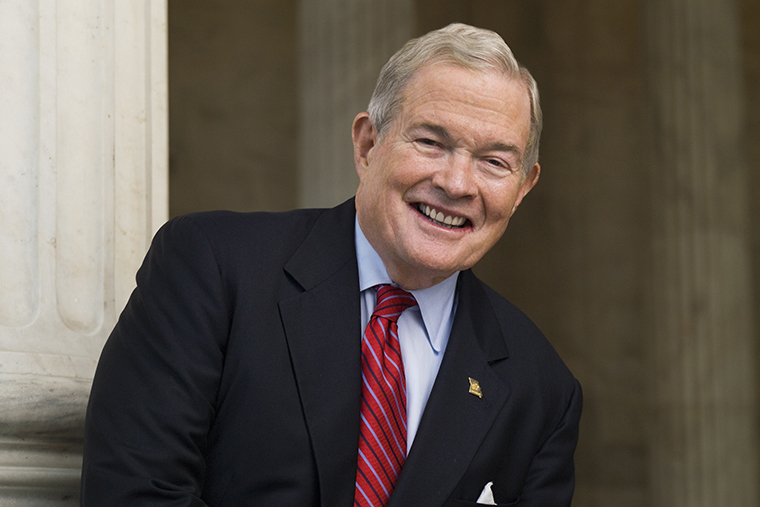
As vice chairman of the Senate Intelligence Committee and then as a senior member of the Senate Appropriations Committee, Bond was known for his efforts to reform the U.S. intelligence community, garner support for a strong and well-equipped military and improve care for veterans.
He also worked to replace aging and uninhabitable public housing units with family-friendly mixed-use housing, and he led the fight to help end homelessness and reduce lead-paint poisoning among children in public housing.
He has been recognized as a leading advocate in the promotion of plant biotechnology to meet the growing global demand for nutrition and food. He was a board member of the Donald Danforth Plant Science Center.
Throughout his career in public office, Bond worked to develop policies that strengthened the connection between parents and children and helped keep kids healthy. He considers helping to expand the Parents as Teachers (PAT) program one of his greatest accomplishments as governor. Bond serves on PAT’s board of directors.
After leaving the Senate in 2010, he joined the law firm Thompson Coburn, and in November 2011, he started his own firm, Kit Bond Strategies, where he continues to serve as chairman and partner.
Helmholz was a professor of history and law at Washington University’s School of Law and in Arts & Sciences from 1970 to 1982 before moving to the University of Chicago as professor of law. He also was a visiting professor at Washington University’s law school in 2007-08 and in 2019.
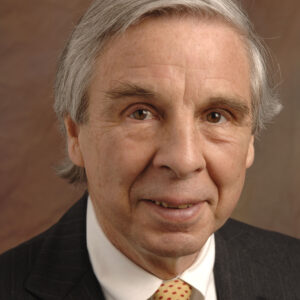
He has kept engaged with WashU, serving on its School of Law National Council, now known as Board of Advisors, since 1995 and as a supporter of student scholarships. He also served on the University Libraries National Council from 1986-1994.
An author or editor of more than two dozen books that have appeared in French, German, Italian and Spanish, as well as English, and dozens of journal articles, Helmholz is widely known for his research on the influence of canon law on the common law.
His teaching interests have been centered in the law of property and in various aspects of natural resources law. He teaches courses on property, European legal history and the law of oil and gas.
His research interests are concentrated in legal history, where his principal contribution has been to show the relevance of the Roman and canon laws to the development of the common law.
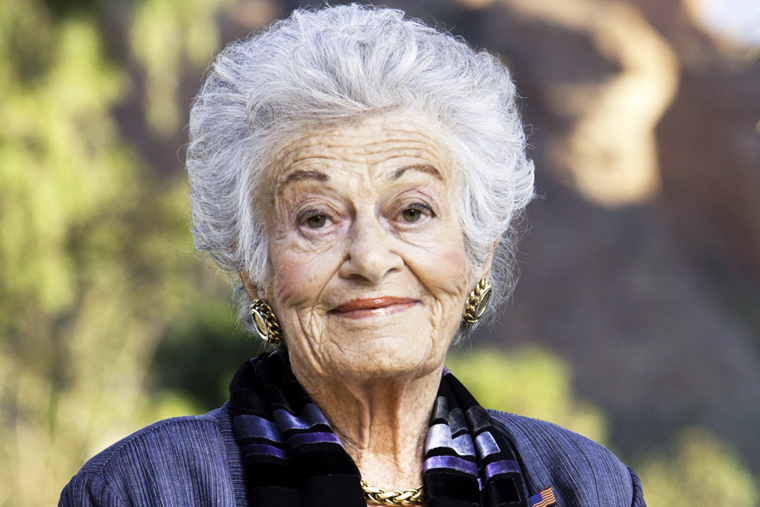
When Klein received the 2010 Presidential Medal of Freedom, then-President Barack Obama said of her: “As an author, a historian and a crusader for tolerance, she has taught the world that it is often in our most hopeless moments that we discover the extent of our strength and the depth of our love.”
Klein, who endured unimaginable atrocities during six years under Nazi rule, has dedicated her life to fighting racism and intolerance and promoting Holocaust education and human rights.
Klein was among 120 people who survived a 350-mile death march and were liberated by U.S. Army soldiers on May 7, 1945. Kurt Klein, a U.S. Army intelligence officer and himself a refugee from Nazi Germany, was the first to come upon Gerda and the other survivors, and their love story began at that moment. They were married for 56 years, until his death in 2002.
Klein’s memoir, “All But My Life,” has been in print since 1957 and is used in high schools and colleges around the world. It served as the basis for the film “One Survivor Remembers,” which received an Academy Award and Emmy Award and was selected by the Library of Congress to be entered into the National Film Registry.
In 2008, Klein founded Citizenship Counts, a nonprofit whose mission is to educate middle and high school students on the tenets of citizenship, encourage them to appreciate their rights and responsibilities as Americans, and give them an opportunity to celebrate citizenship by engaging in or hosting a naturalization ceremony.
Kornfeld is best known for developing the field of glycoprotein research — the study of how sugars attach to proteins and the roles these molecules play in how cells function.
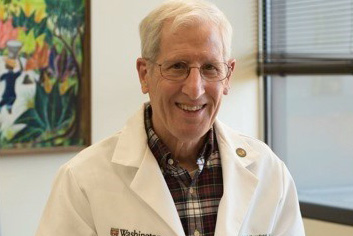
His work led to new understandings of inherited disorders known as lysosomal storage diseases, including Gaucher disease, Pompe disease, mucolipidosis and Tay Sachs. Though the details are different in each disease, all lysosomal storage disorders include the damaging buildup of cellular waste. Severe forms of these diseases are often fatal.
While Kornfeld credits other labs for developing treatments for specific lysosomal storage disorders, those discoveries would not have been possible without his lab’s research into how important enzymes travel to the lysosome via the mannose-6-phosphate pathway. Kornfeld and his colleagues detailed this pathway in a highly regarded set of papers published in the 1980s.
Over its 50 years of research, Kornfeld’s lab has produced papers that have become classics in the field, including one — co-authored by his wife, collaborator and fellow Washington University glycobiology pioneer, Rosalind Hauk Kornfeld, PhD — that has been cited more than 4,200 times. The two led the glycoprotein field for decades, co-authoring many seminal papers before her death in 2007.
In recognition of his outstanding contributions to medical research, Kornfeld has received numerous awards, including the E.B. Wilson Medal, the Passano Award and the Kober Medal, one of the highest honors in academic medicine.
Prior to founding Moms Demand Action, Watts was a stay-at-home mom of five and former communications executive at Fortune 100 companies.

Then, in December 2012, the day after the Sandy Hook school shooting tragedy in Newtown, Conn., Watts started a Facebook page to unite women to fight for gun safety. She started a conversation online that turned into an offline movement similar to Mothers Against Drunk Driving, which united mothers against the alcohol lobby in the 1980s.
Moms Demand Action is now one of the nation’s largest grassroots movements with a chapter in every state, hundreds of thousands of volunteers, and — together with its partners Students Demand Action and Everytown for Gun Safety — over 6 million supporters.
In a 2020 Forbes magazine article, she described why she became an activist: “After Sandy Hook, I felt I had to do something. It’s gun violence that kills 100 Americans a day, Black and Latino Americans represent the majority of gun homicide victims, and in an average month, 53 American women are shot to death by a partner. I have watched this issue in this country for too long and I’m incredulous that no one was doing anything. As Alice Walker once said, ‘Activism is my rent for living on the planet.’ Fighting for gun safety became my rent!”
